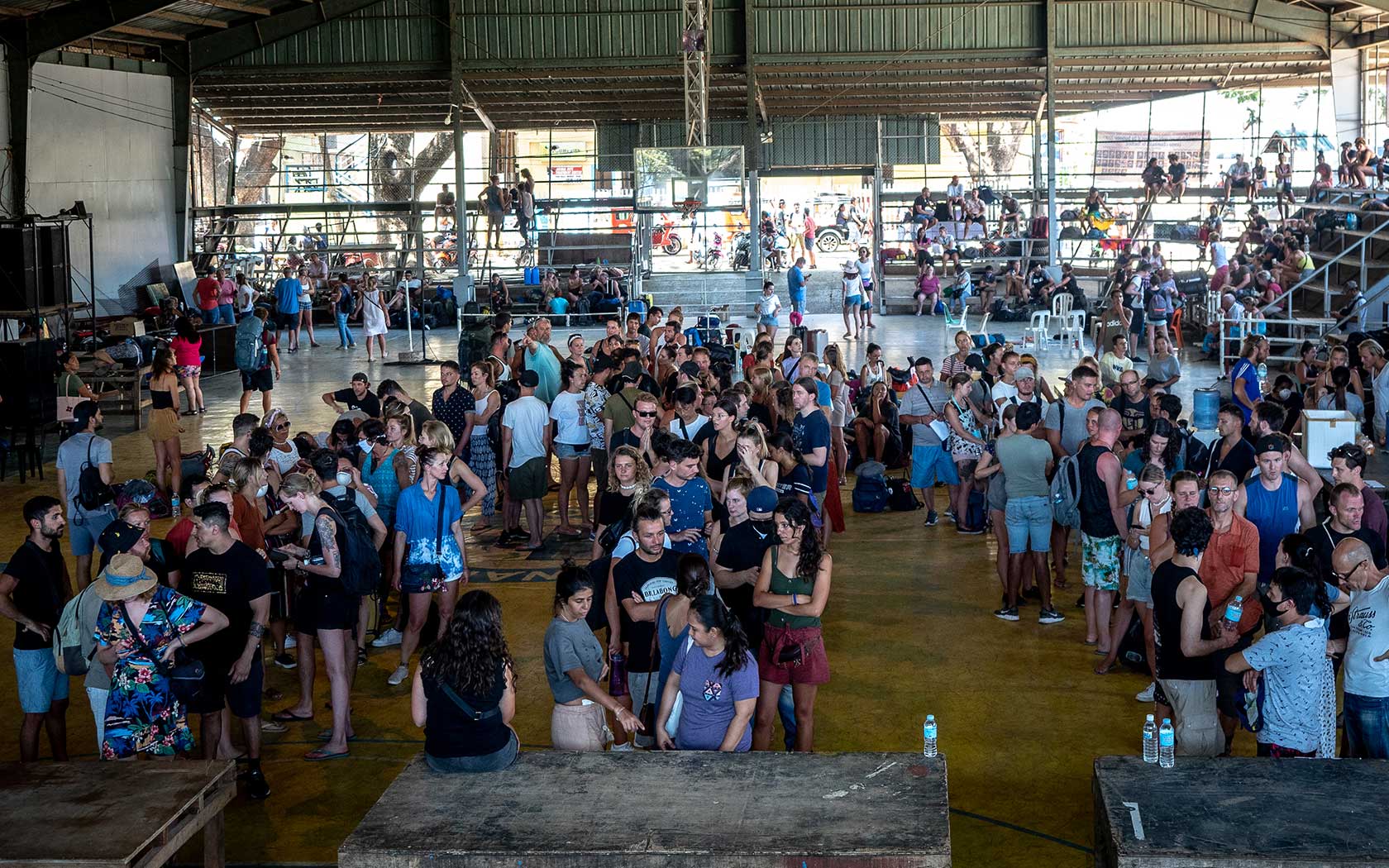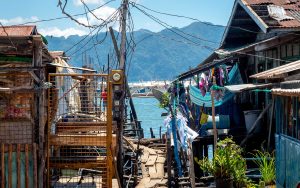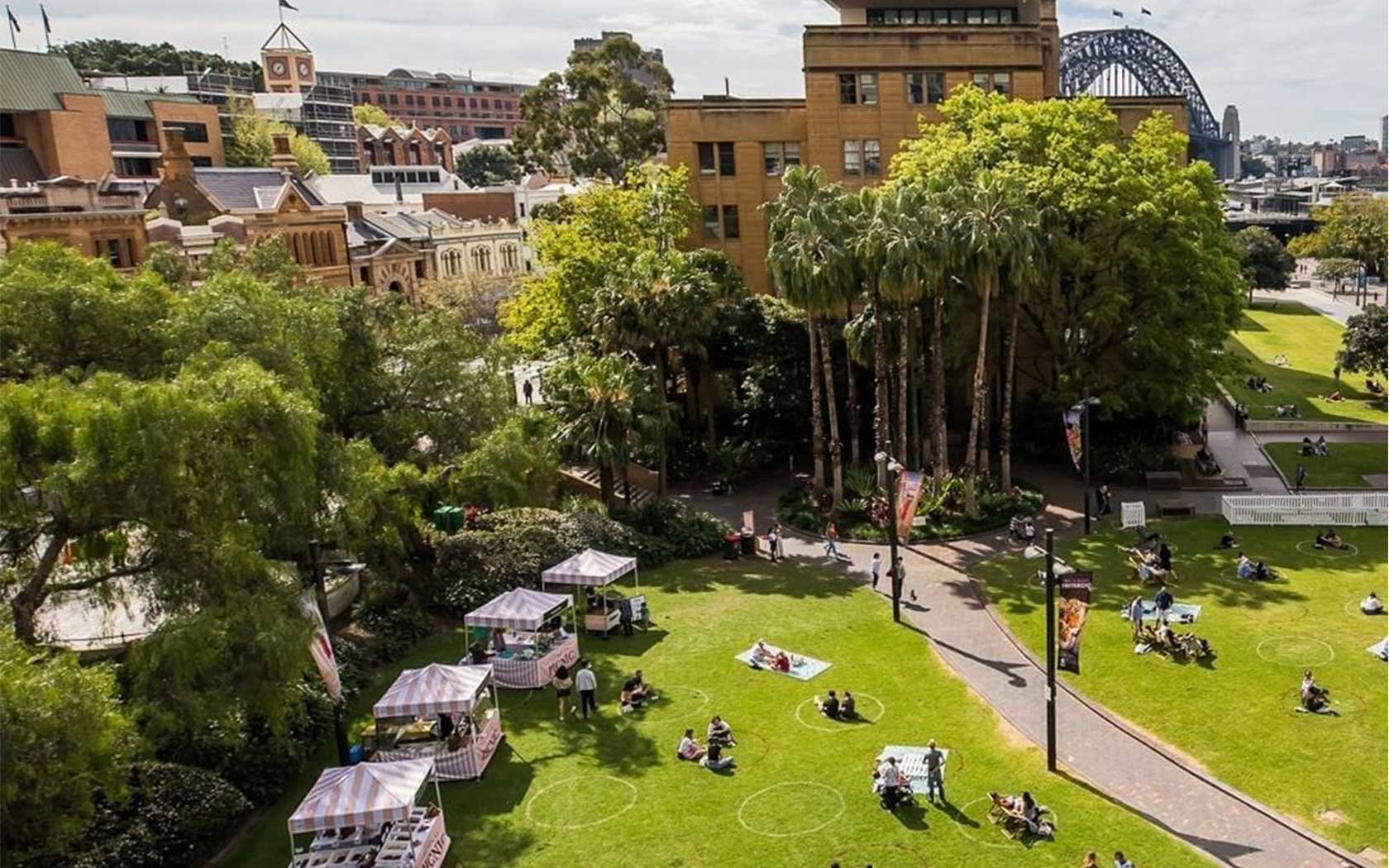What Being Stranded Overseas By A Global Pandemic Has Taught Me About Life

At the start of March, my partner and I flew to the Philippines via Kuala Lumpur. While already in transit, we read that Manila would go into lockdown in 48 hours.
We asked each other a flurry of questions. “Do we go anyway? Do we head back to Melbourne? Should we go somewhere else, like Myanmar? People who visit Myanmar love it!”
A pandemic was so far from anything we had ever experienced, we had no idea what it would look like in reality (I really, really wish I had watched 2011 film Contagion beforehand). So could a quick stopover in Manila and next-day flight to nearby island Coron really fail us?
Yes. So much yes.
Upon landing in Coron, we were told the island would go into lockdown the very next day – there would be no one entering or exiting. We were advised to head to the main town’s gathering place, Coron Coliseum, immediately for updates. There were about 1000 travellers gathered there.
On the Coliseum’s stage, a Coron Council member started presenting new tickets to some travellers whose flights had been cancelled. The rest of us were in limbo.

The spokesperson said travellers only had three days to leave Coron. The trouble was, all commercial flights were booked. Coron’s airport tarmac is also “too small for military planes”. But, there was an AUD$15,000 helicopter ride to nearby island Palawan on offer.
We continued scavenging for flights online. Some miraculously popped up, we’d book, airlines would cancel the next day.
As we looked for new accommodation in Coron – which would close all hotels over the next week – my partner dropped his phone on the street. A lady picked it up. “Do you have flights?” she asked.
“No, we don’t”.
Her name was Bammie and she was either an angel or about to scam us. She sat us down at the back of her mother’s pharmacy to help us find flights. “There are 6 seats left on a charter flight to Cebu,” she said while on the phone to her friend and sales manager at Philippine Airlines.
“We’ll take two,” I said instinctively. I’m not an instinctive person. After handing AUD$1000 over, was this going to be the golden ticket?

The next day at the airport, the questionable document allowed us through airport security. We passed hordes of desperate tourists trying to book flights and leave. I glanced out the airport window onto the tarmac – lo and behold, the mystery plane was real.
There was no relief yet however, as things kept changing rapidly — by that point I had coined it “travel Jumanji”. How could so much change during an hour’s flight? As we disembarked, a flight attendant said to me “there will be no international flights leaving from tomorrow”.
We sprinted to departures to buy a flight to – well – anywhere! Everything for the evening was allegedly completely booked.
Deflated, we made our way to a hidden bar defying an 8pm curfew and total liquor ban placed on Cebu City. The kind and concerned staff advised us to find accommodation, bunker down and quickly buy a sack of rice. Panic buying had commenced in the city, which at that point in time had no confirmed cases of the virus.
The next morning, we returned to the airport with low hopes but discovered that the outbound flight ban was actually just a rumour. While we lined up to purchase flights out, I was on the phone to my trying-to-keep-it-cool Mother back in Australia. She had another phone pressed to her opposing ear, on a mission with a travel agent to get us home.

Much of my big, Greek family was on the case trying to search for tickets: my Dad, uncles, a niece once removed. My brother found some winner flights and the travel agent snapped them up. Confusingly, two almost empty flights ended up taking us home.
There are countless stories like ours and many which are so much worse. But, there are important lessons to be learned within all the madness of a completely unprecedented event like this worldwide pandemic, many of which extend beyond travel.
#1 There are times when playing it safe is the right choice
We were fairly confident travelling in early March, but hindsight is a beautiful thing. The impacts and events associated with the pandemic were once unimaginable. Now, we are well acquainted with its wrath.
You may think “oh, seeing the world in pandemic form will be interesting”. You’ve got that right, but if you’re travelling for the purposes of cultural and historical discovery, it will be completely limited by lockdowns and countries naturally in defence mode.
Do I regret going? I don’t. But we were lucky to get home, unlike many who are still stranded. Would I take the risk again? Hell no. It’s just not worth it.
#2 Make a choice and don’t hesitate
I reflect on many of our assumptions and simply piss myself. Flights to get home from Cebu seemed exorbitantly expensive at one point ($2500). “Let’s just wait a few days for more flights to pop up and prices to calm down,” I said. What a joke. When airlines started reducing the number of their offerings, we quickly put that strategy in the bin.
When things are uncertain, make a decision and act on it.
#3 Go above and beyond to get current, factual information
Communicating with local governments in crisis scenarios is key. It’s your best chance of getting the most reliable information possible. Unfortunately, overseas governments cannot attain on-the-ground information about another country as quickly as travellers need in rushed, desperate times.
Plus, there is so much misinformation out there, it’s our responsibility to consciously seek the truth.
#4 Sometimes, you just have to trust
I wonder what would have happened if we didn’t trust Bammie. Would we still be in Coron? It doesn’t sound so bad now, being stuck on an island (I live in Melbourne, ha). I’ve learned that sometimes, you just need to have faith in your instincts and trust that things will be okay.
#5 Don’t discount the abilities of travel agents
Many of us fall into the generation of DIY travel. I never use travel agents. But without one, I wouldn’t have gone home. The flights I found online weren’t actually booked out, as it appeared. Airlines were attempting to space passengers out on flights because of potential virus risk, but we couldn’t have known that at the time.
The travel agent we contacted chased flights for two days before securing some for us. He had to do some serious convincing with airline representatives to get them. Having a professional on the case made all the difference.
#6 Connect with others going through the same challenges
It’s easy to feel overwhelmed in a crisis, facing new things we never thought we’d have to. But speaking to others who are facing similar challenges is great for a few reasons. For one, it helps us process and two, they may have some golden nuggets of advice you hadn’t thought of.
#7 Be ready for anything
There is so much out of our control at the moment, which is an uncomfortable thought for many people. But being disappointed all the time simply takes too much energy. Instead, for the rest of 2020 and the year that follows, be mentally prepared for absolutely anything to happen.
Since this experience, I’m trying to be open, adaptable and rational — even though it’s difficult at times. Protecting our mental wellbeing is key to facing adversity.
(Lead Image:Provided / Tristan Balme)


